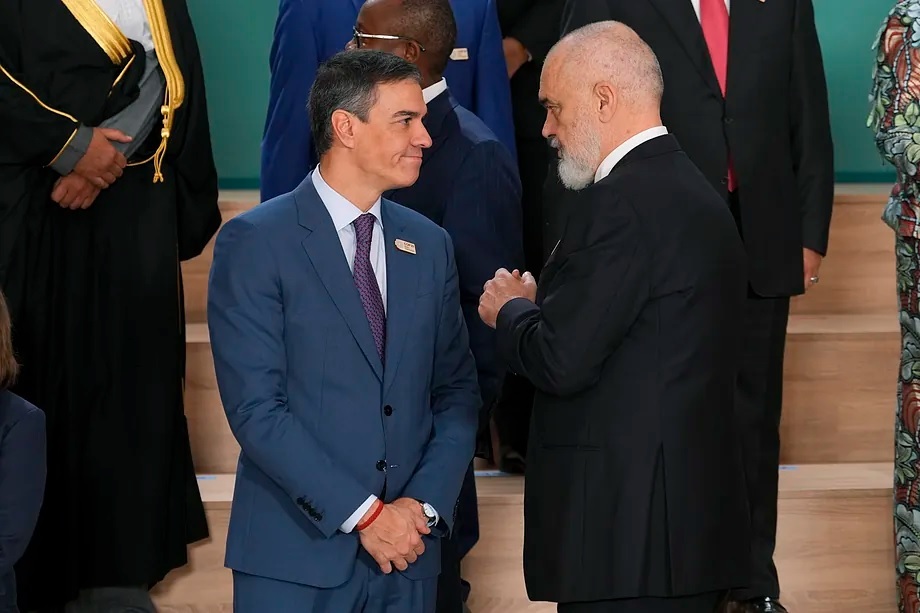At every climate summit, there is fortunately a leader, more or less unknown, who goes off script. At COP26 in Glasgow, the main protagonist was Simon Kofe, Tuvalu's Foreign Minister, delivering his speech fully suited with water up to his waist from his distant Pacific island: "We are sinking!" At COP29 in Baku, that role has been taken on from his enviable height by Albania's Prime Minister, Edi Rama, giving up reading what he had written and scolding the over 66,000 delegates who have finally gathered in the capital of Azerbaijan...
"People eat, drink, meet, take pictures together, while the voiceless leaders are heard as background noise. For me, that's what happens in our days in the real world. Life goes on exactly the same, with its old habits. Our speeches, full of good words on how to combat climate change, do not change anything," declared the Albanian Prime Minister.
"What does all this mean for the future of the planet if the world's biggest polluters continue as if nothing?" proclaimed Edi Rama, a day after the President of Azerbaijan shamelessly stated that gas and oil "are a gift from God", and blaming his country for continuing to exploit them would be "like accusing us of having 250 days of sunshine a year in Baku."
However, the Albanian Prime Minister did not hold back and ended his intervention with a call to shake the international community out of its complacency: "What the hell are we doing here at these summits, time and time again, if there is no common policy on the horizon to go beyond words and unite for meaningful action?"
His powerful voice echoed in the plenary hall, on the third day of COP29, which also featured the Nobel Prize in Economics Muhammad Yanus, serving as interim advisor to the Government of Bangladesh: "We have chosen a lifestyle that goes against the environment, and we accept this economic framework as something as natural as the planetary system."
Yanus emphasized that emissions reduction will not be possible without a change in values, although he expressed confidence in the new generations: "It is possible to do it. We have to accept the need for a change in our lifestyle consistent with the planet we inhabit."
Gaston Browne, Prime Minister of Antigua and Barbuda, stood out this time as the spokesperson for island nations, battered in 2024 by an especially severe season of hurricanes and storms: "For nations like mine, it is no longer a threat but a devastating reality. We cannot wait for more false promises."
"The time has come for countries to assume their moral responsibility," he said when calling for commitment to the trillion-dollar annual climate finance, the main goal of COP29. "But we want grants, not loans, which will only worsen the debt problem, and we also demand the role of the International Court of Justice to ensure compliance with the legal obligations of all states regarding climate change."
